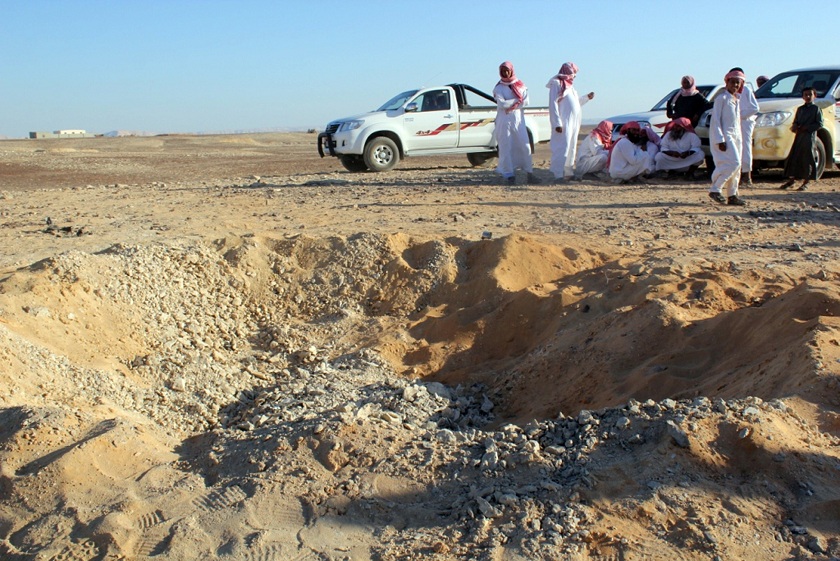ALEXANDRIA: Egyptian Minister of Trade and Industry Rachid Mohamed Rachid and Italian Minister of Economic Development Caludio Scajola met Sunday to discuss furthering economic and industrial ties between the two Mediterranean nations.
The talks at the Library of Alexandria lacked the announcement of any firm commitments for future cooperation but were aimed more at bolstering trade relations between the two countries at a time that has seen international trade slow precipitously.
Italy is one of Egypt’s major trading partners, with business reaching ?4.78 billion between the two nations for the first 11 months of 2007, the latest figures available.
“Italy has always been a strategic partner for Egypt, said Rachid, “in both trade and investments. Over the past few years, the total volume of bilateral trade between the two countries has been growing steadily.
The two countries enjoy a fairly equal trade balance. Egypt exported ?2.15 billion worth of goods to Italy between January and November 2007 while imports reached ?2.63 billion.
Energy exports to Italy have been a major source of income for Egypt, which shipped ?779 million in petroleum-based exports over the same period. These included refined petroleum products, crude petroleum, and natural gas.
Egypt and Italy have experienced a strong growth-oriented trade relationship over the past several years. Total trade stood at ?2.65 billion in 2005 and had almost doubled by 2008.
The two nations’ governments also have a long history of promoting trade relations with agreements signed in 1982, 1994, 2004 and 2008.
In Alexandria on Sunday, the two ministers extended that history when the Ministry of Trade and Industry, Egypt’s Plastics Technology Center, the Italian Institute for Foreign Trade, and the Italian Plastic and Rubber Processing Machinery and Moulds Manufacturers’ Association signed a Memorandum of Understanding (MoU).
The MoU renewed an agreement made between the countries two years ago designed to promote training classes, technical analysis of Egyptian industry, and Italian investment in Egypt, in addition to several other initiatives.
A total of 605 Italian companies in a broad cross-section of industries currently have investments in Egypt.
After taking a tour of the Bibliotheca Alexandrina, holding bilateral meetings, and conducting a press conference, the two ministers headed off to the Borg El-Arab textile cluster to inaugurate a new Italian factory there.
The Cotonificio Albini Factory is the new textile factory and represents an Italian investment of ?11.7 million.
Egypt is a net importer that has seen its trade gap widen in recent years. Its trade balance stood at $-7.0 billion in the first quarter of the 2008-2009 fiscal year as compared to $-5.2 billion over the same stretch the previous year.
Total imports and exports have continued to grow steady – both have more than doubled since the 2004-2005 fiscal year.
Much of these gains are as a result of a program that the government launched in 2004 and 2005 to liberalize trade and reform its policies around foreign direct investment (FDI) to attract large multinational firms.
Even as high rates of inflation recurred over the 2006-2007 and 2007-2008 fiscal years, FDI continued to grow both in raw terms and as a percent of GDP.
With the government unrolling its stimulus package and as international analysts agree that Egypt is weathering the current economic recession better than most of the economic powerhouses, many agree that Egypt’s status as a profitable and safe investment opportunity may continue to grow.
Egypt owes its recent successes in no small measure to its success in diversifying the sectors for FDI and exports. This means that setbacks in one industry are less likely than they were to have a catastrophic impact.
Egypt’s three biggest sectors are the services industry, manufacturing and mining, and agriculture which represent 54 percent, 32 percent, and 14 percent of GDP, respectively.
In an effort to diversify its foreign investments, the country has broadened and solidified the geographic scope of its trading partners. It signed a preferential trade agreement with the European Union (EU), a Pan-Arab free trade agreement, a preferential trade agreement with the Common Market for Eastern and Southern Africa (COMESA), and a statute of lower trade restrictions with Turkey.
The government has also dedicated 43 million square meters of land throughout the country for industrial parks which the Ministry of Trade and Industry estimates may create over 200,000 jobs.
